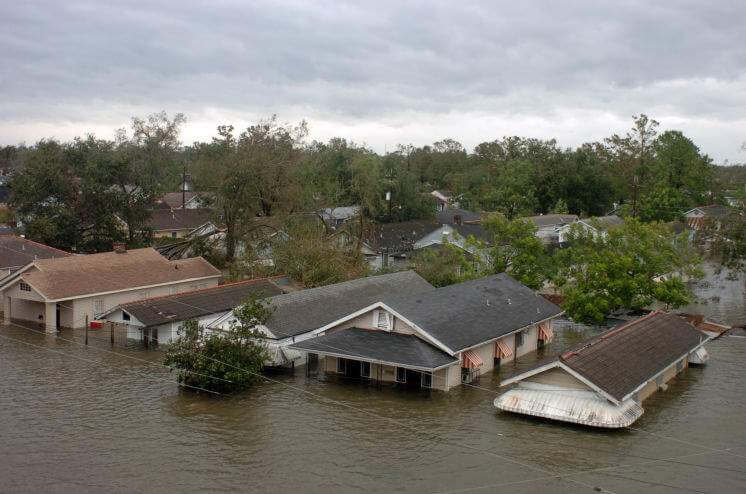The National Flood Insurance Program (NFIP) is scheduled to expire Friday night if Congress doesn’t act, a lapse which may roil real estate markets and inject uncertainty into the lives of homeowners in flood-prone areas.
Lawmakers on Capitol Hill are eyeing a short lived, two-week extension of the program to buy time for negotiations on a longer deal targeted at overhauling the critical but embattled federally run program.
The looming deadline to handle the NFIP comes in the midst of a jam-packed and acrimonious stretch in Washington. Leaders on Capitol Hill are launching negotiations over a comprehensive spending bill also essental to Friday to prevent a shutdown of the federal government.

Have to have flood insurance? Procedure could actually become challenging
A proposed spending deal unveiled by Republican leaders on Monday would punt on both, maintaining the flood insurance program and the government operating through Dec. 22, buying time for further negotiations over domestic and military spending in addition to a number of other challenges.
Many real estate professionals and advocates for NFIP policyholders had envisioned an extended agreement to supply greater certainty about flood-insurance coverage and rates. But because of the looming deadline and frenzy of other activity on Capitol Hill, almost everybody involved now sees a short-term extension as the only realistic choice to prevent the program’s expiration.
A lapse in the program would create chaos in real estate markets and cause major issues for property owners attempting to renew their policies, as outlined by several Louisiana real estate agents who spoke with The Advocate in recent weeks. Banks couldn’t sign off on new federally backed mortgages for homes in high-risk food areas and sales even outside those areas would most likely slow dramatically or screech to a halt.
“True lapses in the program will literally shut down the markets in flood-prone regions,” said Rick Haase, president of the New Orleans-based real estate company Latter & Blum. “Buyers don’t want to buy in the unknown, sellers don’t want to sell at prices based on the worst-case scenario and lenders don’t want to lend.”
“If there’s a lapse in coverage, it would equate to about 1,300 losses of sales a day and 40,000 a month” nationally, said David McKey, co-owner of the Baton Rouge real estate company Coldwell Banker One and chair of the National Association of Realtors’ insurance committee.
“Everybody knows we’ve got to keep it alive so we’re going to do an extension,” Sen. John Kennedy, R-Louisiana, said when asked about the prospect of a lapse in the NFIP.
Key factions in Congress are already at loggerheads for months over a raft of proposed changes to the National Flood Insurance Program, that is currently mired in billions of dollars of debt.
Politicians from flood-prone states, including Louisiana’s delegation, have pressed for reforms that keep premiums affordable and don’t restrict coverage for those of you in high-risk areas. However a selection of fiscal hawks have sought to shore up the program’s finances by significantly hiking premiums on those paying below-market rates and booting some properties out of the program altogether.
Another key sticking point is the role of the private market.
Federal regulations currently enable it to be very difficult for private insurance companies to supply flood coverage and a number of Republican lawmakers have pushed changes to permit insurers to compete with the federal government. But Louisiana lawmakers as well as others have expressed concerns that private companies might “cherry pick” customers, luring the most profitable policyholders with more affordable prices while leaving the NFIP with an increasingly risky and subsidized collection of homeowners.
Bridging the gap has proved difficult. The House of Representatives passed a five-year reauthorization to the program in November, a vote that split Louisiana’s congressional delegation over concerns that modifications in the bill would increase rates on homeowners in large parts of flood-vulnerable Louisiana.
The Senate indicates no interest in taking up the House-passed bill but has additionally made little progress toward patching together its own comprehensive proposal from several competing bills, including separate ones sponsored by Kennedy and Sen. Bill Cassidy, R-Louisiana.
It’s unclear how close a vote on the proposed spending deal could possibly be or what price Democrats – a minimum of eight necessary for the Senate to pass it – might exact prior to getting on board.
Republicans in both chambers are also just beginning negotiations to hammer out differences between their tax plans, with Republicans wishing to send a final tax bill to President Donald Trump before Christmas.
“Right now, there’s so much being jammed (through Congress) that it’s been hard for everybody to sit back and consider the policy,” Cassidy said Monday evening.
Cassidy added that a selection of short-term extensions for the program are increasingly likely. Despite their drawbacks, Cassidy said, a series of short extensions with few or no changes allows lawmakers time for it to keep pushing for a policyholder-friendly overhaul of the program.
“If we have to wait a little bit to get better policy, I’m OK with that,” Cassidy said. “What we don’t want is a piecemeal bill that would eliminate the ability to do important reforms.”
“The shorter the better as far as I’m concerned,” said Kennedy, “because I want to keep the pressure on to get something passed.”
Have a questions or concern? Nick & Cindy Davis with RE/MAX Premier Group are here to assist you. We are always a just a click here away or call 813-300-7116